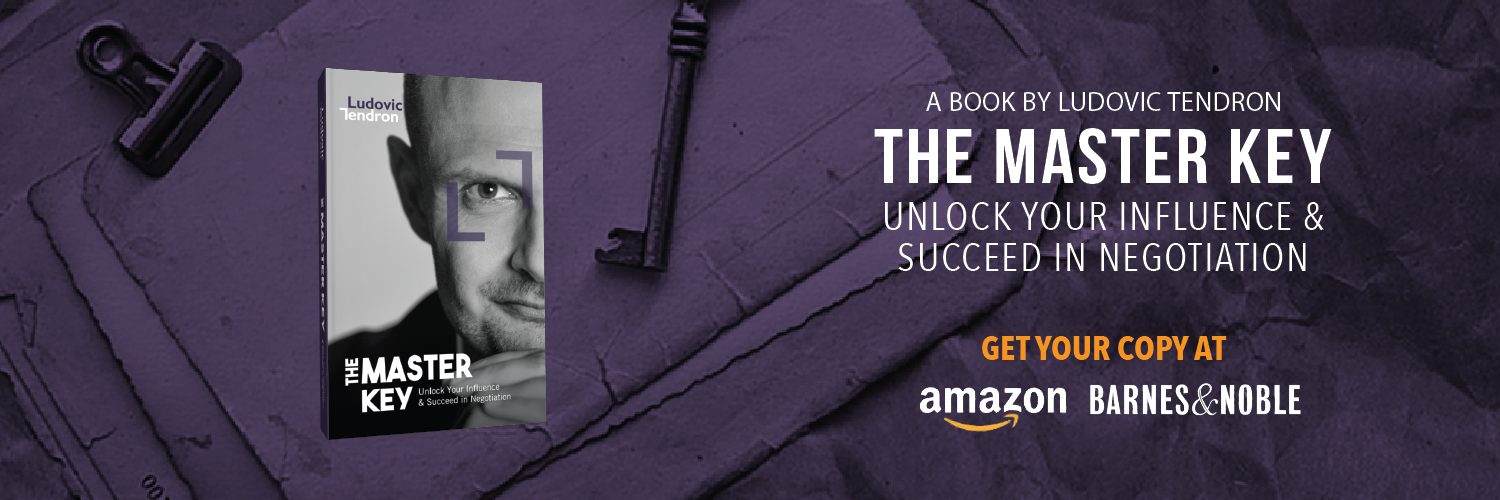Given the importance of negotiation in our lives and especially when doing business, the question we must ask is: What are the qualities that make some negotiators more effective than others beyond age, sex, status, education, motivations, and even intelligence?
Are there any other basic character attributes negotiators should develop or that should be highlighted? The answer is yes, and these are some of the most important:
1 - Calm
This should be a no-brainer. You have a better lasting influence on others if you stay calm and avoid raising defenses. Composure will always deliver better outcomes in negotiations and in the long run. You can be perfectly firm when necessary, but you should remain calm.
To achieve this objective, stress management, self-awareness, and efficient daily routines are keys. Breathing, exercise, sleep, limited coffee, meditation, and more should help to keep an inner calm. Some habits may be more effective on you than others. It is your opportunity and responsibility to find it out.
Pressure is almost inevitable in modern societies, but mistakes triggered by anger are often avoidable. The trick is not so much to force yourself to be calm but embrace crisis to a point that the challenge becomes exciting
2 - Patience
Though occasionally business opportunities may be missed by being too cautious, rushing can also have disastrous consequences. This is the case if you overlooked your obligations or the price you have accepted to pay is too high.
It is certainly difficult to be patient sometimes, especially when the stakes are high, and we evolve in a highly competitive environment. Taking our time can also have a cost. However, the best deals we strike are generally those we are not desperate to close. Issues must be properly addressed and not brushed off or ignored for the sake of closing sooner rather than later. Yes, patience has limits, but patience pays off better than impulsivity. This is why philosophers, theologians, writers, and other thinkers have been praising its virtue for centuries.
3 - Creativity
To transcend initial rejection and overcome obstacles, a skilled negotiator must engage their creativity and generate ideas. Negotiation is a conflict of interests where gaps must be bridged, discrepancies ironed out, and accord reached. Creative negotiators can best generate solutions when they are not singularly focused on their own needs and instead looking at mutually beneficial outcomes.
The antithesis of a creative negotiator will be a person strictly abiding by the rules, going by the book, or sticking to a line of conduct no matter what. They see novelty as a threat to their objectives. They lack flexibility and have few alternatives to offer. They let fear drive their actions.
4 - Giving
Givers are more successful than takers. Self-interest, as line of conduct, exposes takers to a decrease of trustworthiness, missed opportunities, and possibly a bad reputation.
A taker is a self-serving person whose mindset conflicts with the fundamentals of negotiation, which are cooperation and compromise. By givers, I mean people who will help without waiting to be asked for it or being helped first. Givers won’t expect anything specific in return. The difference between givers and takers can be illustrated by these two questions: “what can you do for me?” (taker) versus “what can I do for you?” (giver).
Statistics speak for themselves: givers deliver higher revenue in organizations in the long run, they leave a better first impression, they provide better service quality, they are more productive, and so on. Research can even predict the profitability of a corporation based on the giving rate of its employees.
Giving may be as simple as giving feedback, making a valuable introduction, or inviting someone to dinner.“Remember, there’s no such thing as a small act of kindness. Every act creates a ripple with no logical end,” according to cartoonist Scott Adams
Should you want to develop your negotiation skills. please contact us for an inquiry on negotiation courses or negotiation coaching in Singapore or elsewhere.




